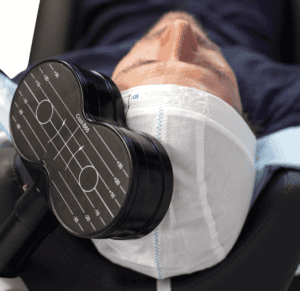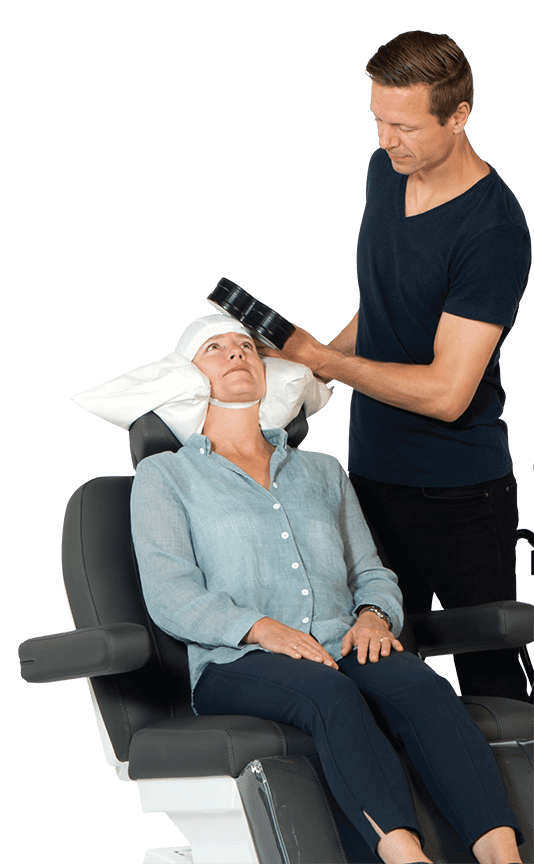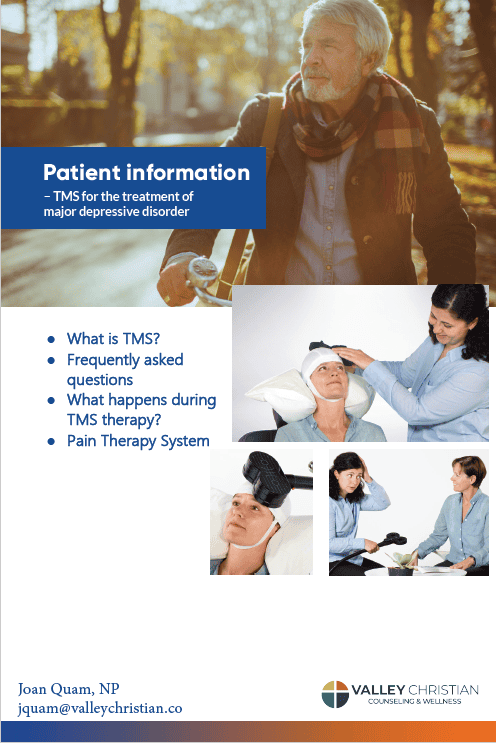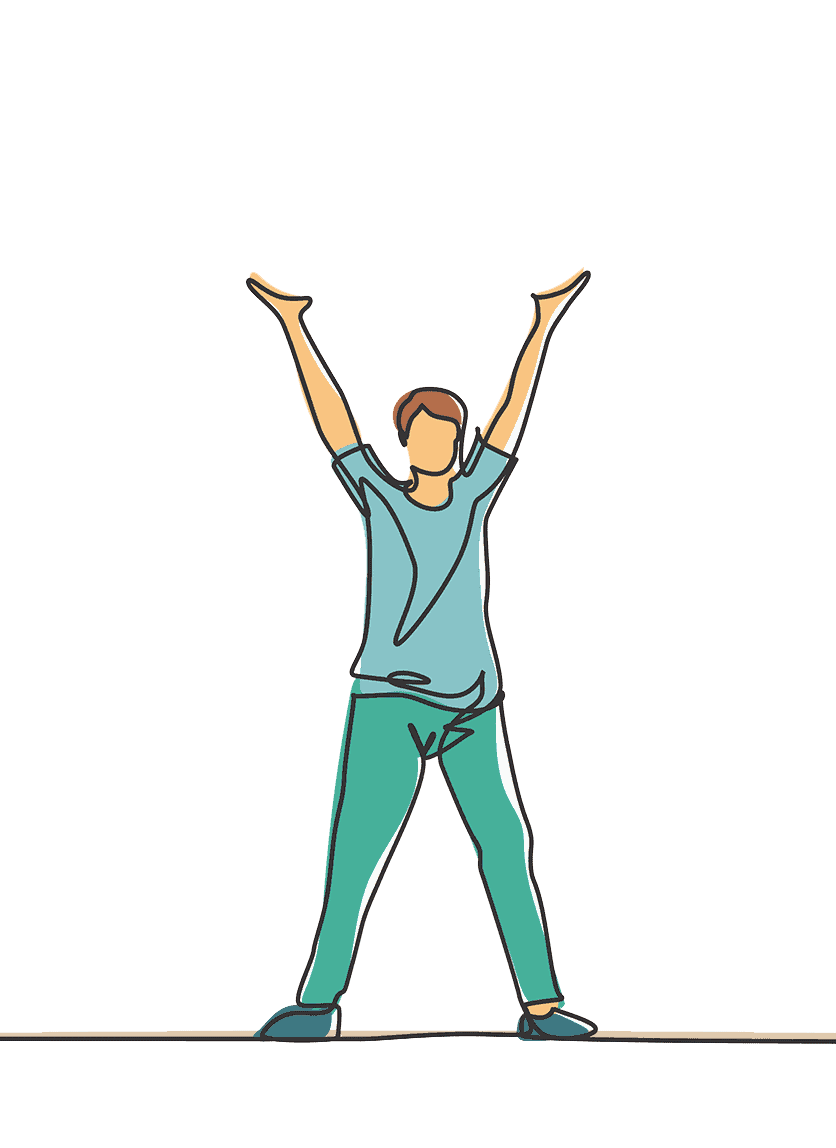TMS Therapy
TMS
Transcranial Magnetic Stimulation
TMS is short for transcranial magnetic stimulation.
TMS is a non-invasive treatment where magnetic pulses are delivered to stimulate nerve cells in the part of the brain controlling the mood. This area is often underactive in patients with depression.
Stimulating this particular part of the brain has proven to produce an antidepressant effect on people suffering from depression.
TMS does not require anesthesia or surgery. TMS is not to be confused with ECT (Electro Convulsive Therapy) and it does not affect cognitive function such as memory.


What Is Depression?
Depression affects 300 million people worldwide and is the leading cause of disability. The most common symptoms of depression are feelings of emptiness, sadness or irritable mood in combination with both cognitive and somatic changes. This can significantly affect the individual’s capacity to function.
TMS is for the treatment of major depressive disorder
- TMS: Transcranial Magnetic Stimulation
- Series of pulsed magnetic stimuli to the brain
- Most common side effects from TMS therapy are headache and nausea
- Does not affect cognitive function
- You will typically be able to resume daily activities right after treatment
- TMS may be used with or without antidepressants (determined by provider)
- TMS is not the same as ECT (Electro Convulsive Therapy)
Frequently Asked Questions about TMS
TMS activates the brain nerve cells by repeatedly applying magnetic pulses. TMS is therefore also known as rTMS (repetitive trans-cranial magnetic stimulation) because more than one magnetic pulse is delivered to the brain during a treatment session.
TMS therapy consists of repeated cycles of TMS followed by rest periods. Diagnosis and initial session is performed by a qualified licensed provided. The remaining treatment sessions will typically be conducted by trained staff under the supervision of the licensed provider.
TMS is a treatment option for adult patients suffering from major depressive disorder who have failed to receive satisfactory improvement from antidepressant medication.
TMS therapy is available by prescription only.
Your provider will use medication dosing records and depression scores among other measures to determine whether or not you are a candidate for TMS therapy.

The magnetic coil which delivers the TMS treatment is typically positioned on the left front side of the head. This is the part of the brain which connects all the different brain areas involved in depression.
- The patient is seated in a reclinable treatment chair with head-and footrest.
- The patient is awake during treatment. One session lasts from 3-37 minutes. A full treatment course consists of one session per day, with 20-30 sessions in total.
- A pillow is used around the patient’s head. The pillow becomes rigid once the air is evacuated. This helps ensure that the patient’s head is stable and that the patient is comfortable.
- The patient wears a cotton cap marked with the exact treatment spot.
- A TMS trained staff or provider places the TMS coil on the patient’s head as marked on the cap, and starts the TMS treatment.

Depending on which treatment protocol your provider prescribes, one TMS therapy session can last from 3 minutes and up to 37 minutes. All protocols,
however, will be applied with one treatment session per day, 5 times per week, over a period of 4-6 weeks.
You sit in a chair in a relaxed position in your provider’s office/clinic. When the
magnetic pulses are delivered, you will hear a clicking sound and feel a tapping
sensation on your scalp. To reduce the sound, you will use ear plugs during treatment.
TMS may cause headache or nausea but you should be able to resume your daily
activities right after treatment. TMS therapy is a medical procedure and any side
effects experienced during or after receiving the therapy should be reported to
your provider.
Download our TMS Patient Information HERE





